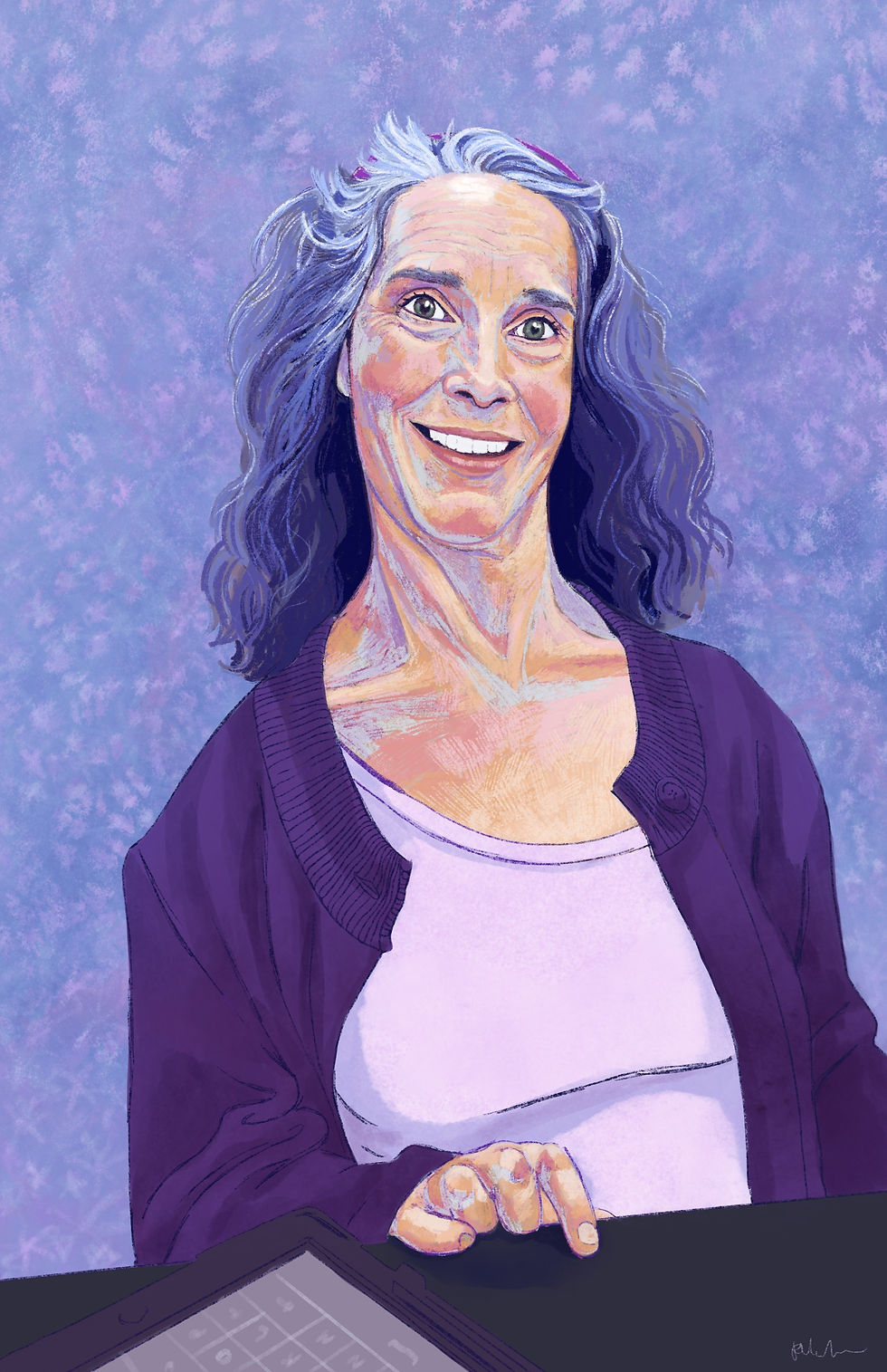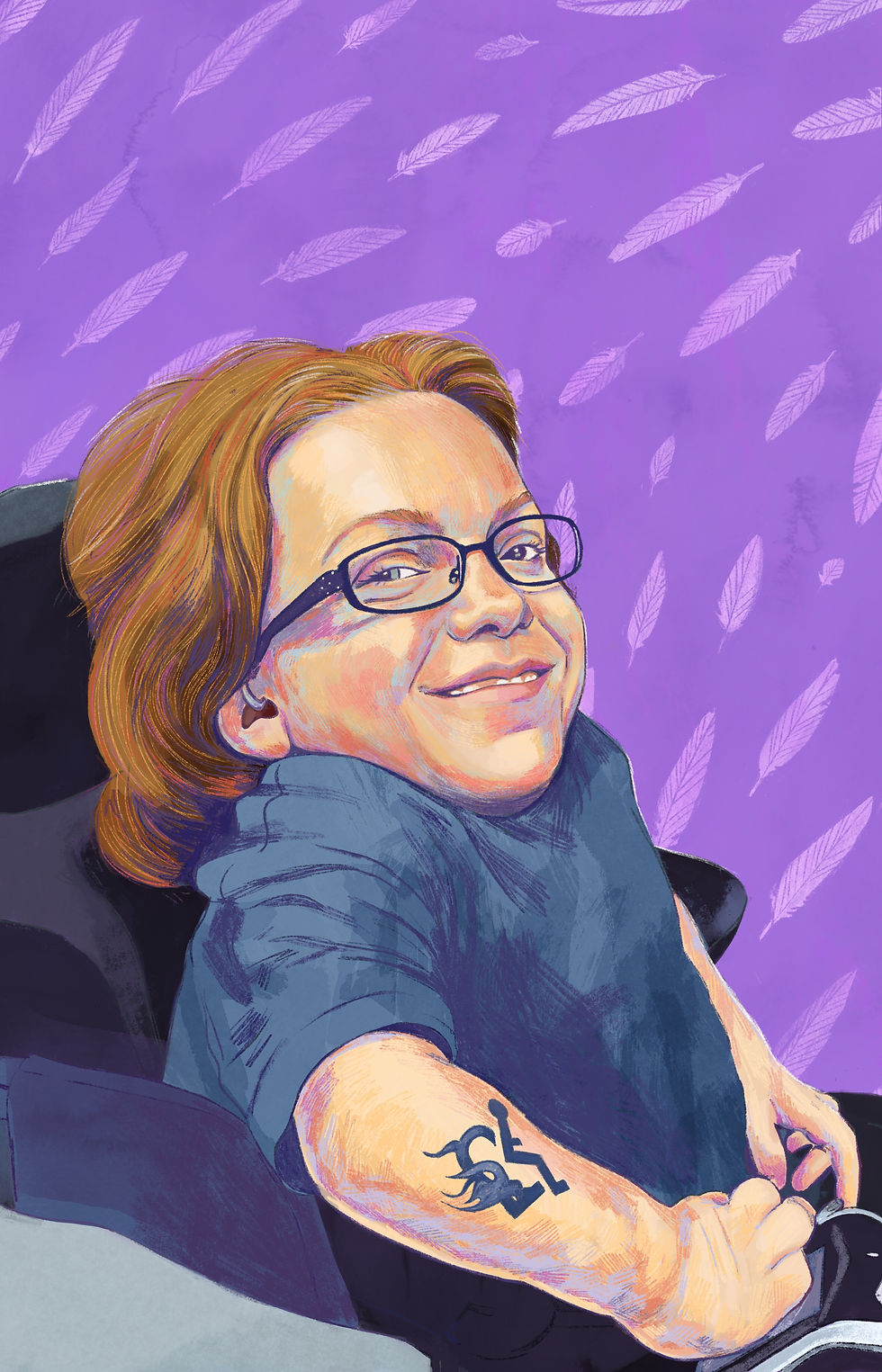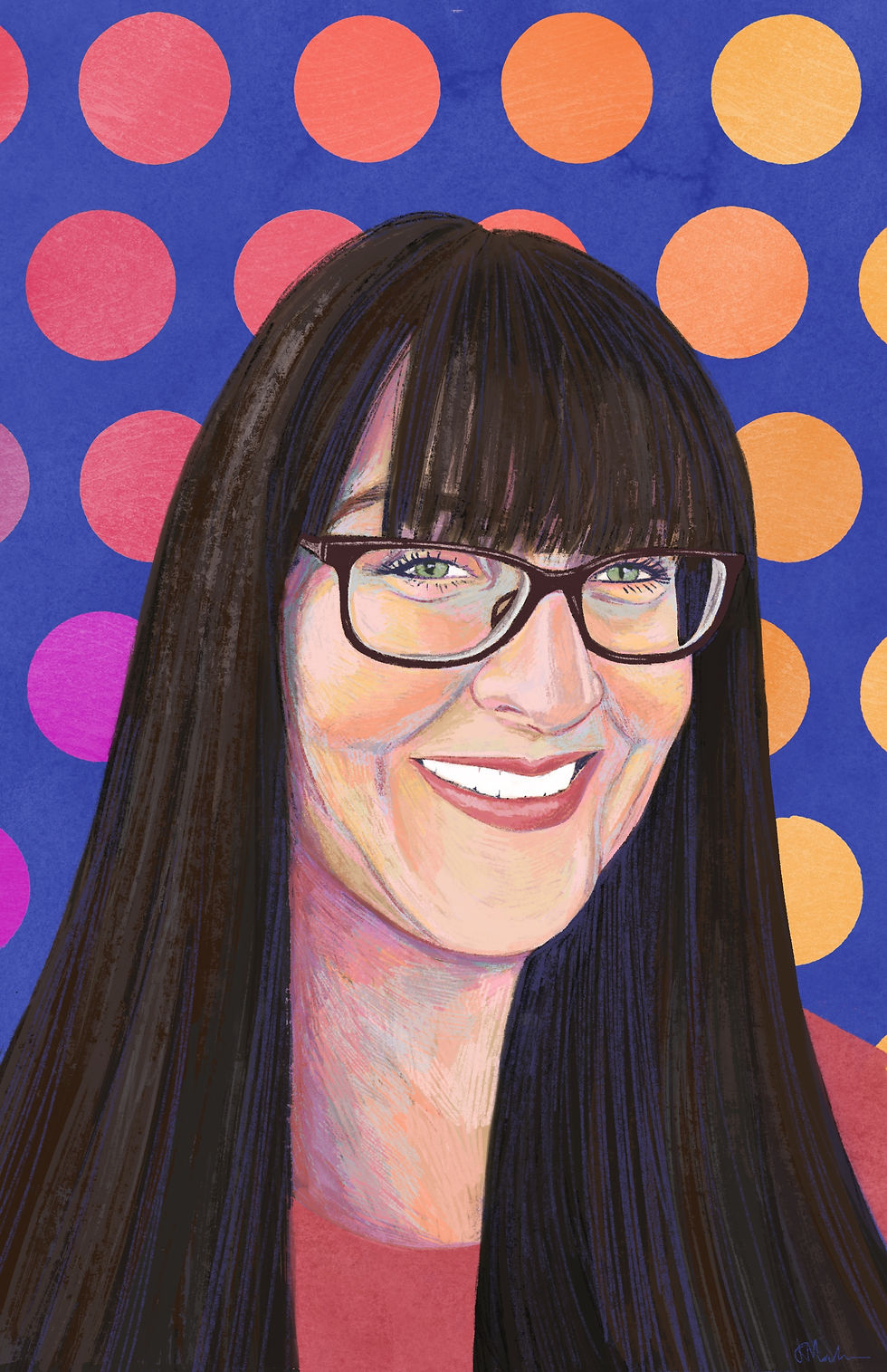Beyond Numbers: The Faces And Stories Of Insufficient Disability Assistance
- Spencer van Vloten

- Dec 8, 2020
- 4 min read
Updated: Dec 10, 2020

I love riding my trike! This is my life saver. I can’t afford physiotherapy or massage therapy. I think I need the physio daily, but at $75 a pop… too much! - participant AJ
By: Spencer van Vloten
BC Disability
Roz MacLean's Insufficient Art Project uses narratives and visual portraits to highlight the individual, human impact of a system which falls far short of providing a reasonable standard of living and support for persons with disabilities.
Spencer van Vloten talked with Roz about the project.
Spencer: What motivated you to start this project?
Roz: My brother has an intellectual disability and I work as an educational assistant supporting kids with various abilities, so the experience of persons with disabilities was always on my mind and very personal for me.
Originally the project was on inclusive education, but as pandemic went on and I saw and heard how it exacerbated the financial struggles of persons with disabilities, it became clear that disability assistance is the urgent issue, and I want to amplify the calls for change.
I also think it's important for there to be a witnessing and recording of what people with disabilities are dealing with at this moment in time. I think documentation is important as a kind of accountability to those in power, and also so these experiences aren't just forgotten, or assumed to never have existed.
Mia Mingus, a disability and transformative justice writer and educator, wrote something that I find incredibly powerful:
"We must leave evidence. Evidence that we were here, that we existed, that we survived and loved and ached. Evidence of the wholeness we never felt and the immense sense of fullness we gave to each other. Evidence of who we were, who we thought we were, who we never should have been. Evidence for each other that there are other ways to live--past survival; past isolation".
Spencer: Why do you think visual art and storytelling are effective ways to approach the issue?
Roz: I have an artistic mindset and way of looking at issues, so it came naturally for me. I think the visual arts help to draw people in, to get them looking and curious, wanting to see and learn more about the topic.
It’s also a way to see the human side and to show each personality, and that there are people behind the issue and not just numbers.

It would be a great boost if I had more for medication, because I need extra cash in case it runs out too soon. - participant Daniel
Spencer: How's the project been going so far?
Roz: Before I started I had a vision of how things would go, but I was mostly focused on art making and didn’t take into account how much time and work would have to go into certain logistics, like creating a website, transcribing interviews, things like that.
There has been a lot of interest, and for that I’ve grateful. At the same time, I’m aware there are limitations to a digital format, because not everyone has the same access to technology, and of course not everyone is verbal and not everyone wants to share this type of information—it’s a very personal thing.
Spencer: What themes and common threads do you see coming out when people tell you their stories?
Roz: The first thing is that housing is such a big part of everyone’s experience. It’s so clear that we don’t have an adequate system for housing people on disability assistance. The numbers don’t match up and there is a huge gap between what housing costs and how much people on disability assistance get for housing.
Family involvement was another big one—it makes a big difference in quality of life. The more support, the better outcomes, and there is a big disparity in quality of life for those who have it and those who don’t, both financially and emotionally. There seems to be assumption from government that family is there filling in the gaps, but it’s not like that for everyone.
Shame and stigma around sharing stories of poverty and disability was another thing. Poverty is still stigmatized and often blamed on the individual, and a lot of people want to be anonymous and don’t want to share experiences in poverty. What then happens, is that when people are struggling some will be hesitant to reach out for help.
Spencer: What impact have the participants' stories had on you?
Roz: Hearing a human voice or seeing a human face highlights the issue more, which is part of the reason why I wanted there to be the visual component of the project.
It’s also frustrating to hear what disabled persons face in dealing with government agencies. There is gate keeping of resources and not an adequate level of support there.

By asking if we are still in need of assistance it is almost presuming that disabilities disappear after a certain time - participant Natasha
Spencer: What have you learned by doing this project?
Roz: I’ve learned so many things about the way the system functions and doesn’t function, and it’s been frustrating. Yet it’s also motivating and makes me want to push harder for greater disability assistance. It just feels like the right thing to be doing.
I feel honoured to hold these stories, and I really appreciate the involvement of all the participants.
Spencer: How do you hope for the project to make an impact going forward?
Roz: I hope to bring it into people's consciousness more so that they are thinking about the issue and the individuals impacted by it. I want these stories and images to be used as examples of how policies affect lives---whenever we are navigating collectively, these individuals are navigating too and are the human side of issue
I want policymakers to read these stories so it's clear to them that their decisions have real impacts. Even something like a policy cutting food allowance when traveling for medical reasons---stuff like this has huge impact, and it can be hard to see unless you listen to those who live it.

As a single mom with two girls, we struggled a lot ...you’d have to pick between either buying clothing, or food, or most of it would go to rent - participant Bridgette
Spencer: If people want to learn more, or to use the project in their advocacy work, what can they do?
Roz: The best thing to do is to visit www.insufficientartproject.ca, and we will also be on Instagram at insufficientartproject. Share the stories and images in your networks, and bring them to your public representatives.
These are stories that need to be heard and people who can't be overlooked any longer; change is long overdue.
See Roz's work at www.insufficientartproject.ca





Comments